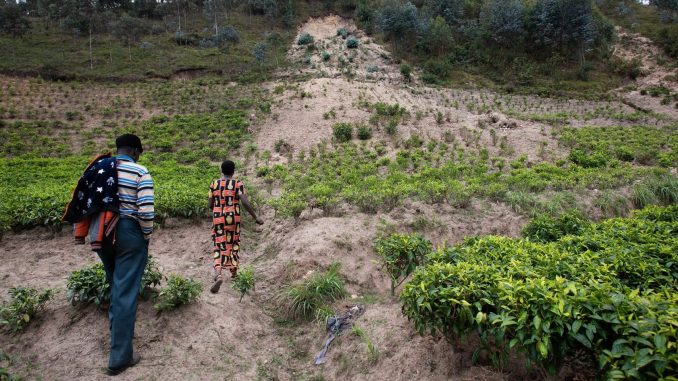
Food security is one of the most pressing challenges facing societies today, and insurance plays a surprisingly influential role in shaping how communities, businesses, and governments address it. At its core, food security is about ensuring consistent access to sufficient, safe, and nutritious food. Yet this goal is constantly threatened by unpredictable forces such as climate change, natural disasters, market volatility, and disease outbreaks. Insurance provides a mechanism to absorb these shocks, offering stability in a sector where uncertainty is the norm.
Agriculture is inherently risky. Farmers contend with droughts, floods, pests, and fluctuating commodity prices, all of which can devastate yields and income. Without protection, these risks can discourage investment in farming, limit innovation, and reduce productivity. Insurance helps mitigate this vulnerability by covering losses when disasters strike, allowing farmers to recover more quickly and continue producing food. This safety net not only protects individual livelihoods but also ensures that food supplies remain stable, reinforcing the broader system of food security.
Crop insurance is one of the most direct ways insurance supports food security. By compensating farmers for losses due to weather events or disease, crop insurance reduces the financial impact of unpredictable conditions. This protection encourages farmers to adopt modern techniques, invest in higher-yield seeds, and expand production, knowing that they are not entirely exposed to risk. In turn, this contributes to more reliable food supplies, benefiting both producers and consumers.
Livestock insurance plays a similar role, safeguarding against disease outbreaks or accidents that can wipe out herds. For communities that rely heavily on animal husbandry, such coverage is essential to maintaining food sources and income. By stabilizing livestock production, insurance ensures that protein supplies remain available and affordable, supporting nutritional security alongside economic resilience.
Insurance also influences food security indirectly by encouraging investment in agricultural infrastructure. Irrigation systems, storage facilities, and transportation networks are critical to reducing waste and improving efficiency. Investors are more likely to fund these projects when insurance is available to protect against losses. This dynamic creates a virtuous cycle: better infrastructure reduces risk, insurance coverage becomes more affordable, and food systems become more resilient.
The psychological impact of insurance on food security should not be overlooked. Farmers and agribusinesses often operate under immense stress, knowing that a single season of bad weather could ruin years of effort. Insurance provides peace of mind, allowing them to focus on productivity rather than being consumed by fear of disaster. This confidence fosters innovation and long-term planning, both of which are essential for building sustainable food systems.
Governments recognize the importance of insurance in food security and often partner with insurers to expand coverage. Subsidized premiums, public-private partnerships, and national risk pools help make insurance accessible to smallholder farmers who might otherwise be excluded. These initiatives reflect a broader understanding that food security is not just a private matter but a public necessity, requiring collective action to ensure stability across entire populations.
Global crises have further highlighted the role of insurance in food security. Climate change has increased the frequency and severity of extreme weather events, while pandemics have disrupted supply chains and labor availability. Insurance systems that adapt to these challenges provide critical support, covering losses and enabling recovery. By cushioning the impact of crises, insurance helps prevent temporary disruptions from escalating into long-term food shortages.
Technology is reshaping how insurance supports food security. Satellite imagery, drones, and data analytics allow insurers to assess risks more accurately and process claims more efficiently. Index-based insurance, which pays out based on measurable indicators such as rainfall levels or temperature extremes, reduces disputes and speeds up compensation. These innovations make insurance more accessible and effective, particularly in regions where traditional coverage has been difficult to implement.
Insurance also plays a role in reducing inequality in food security. Vulnerable populations, especially smallholder farmers in developing countries, are disproportionately affected by shocks. Affordable insurance products tailored to their needs help level the playing field, ensuring that they can recover from setbacks and continue contributing to food production. This inclusivity strengthens food systems by broadening participation and reducing disparities in resilience.
The economic implications of insurance in food security are significant. By stabilizing agricultural production, insurance supports broader economic growth, as farming often forms the backbone of rural economies. It also reduces the need for emergency aid, allowing governments to allocate resources more strategically. In this way, insurance contributes not only to food security but also to fiscal stability and sustainable development.
Looking ahead, the role of insurance in food security will only grow in importance. As global populations rise and climate pressures intensify, the need for mechanisms that protect food systems from disruption will become more urgent. Insurers will need to innovate with products that balance affordability and comprehensive coverage, while governments and businesses will need to collaborate to expand access. The challenge is not only to provide financial protection but also to foster resilience and confidence in food systems.
Ultimately, insurance is more than a financial safeguard in agriculture; it is a cornerstone of food security. By absorbing risks, encouraging investment, and fostering resilience, insurance ensures that food systems can withstand shocks and continue to provide nourishment for communities. Its impact extends beyond individual farmers to entire societies, reinforcing the stability and sustainability of one of humanity’s most essential resources. In a world where uncertainty is constant, insurance provides the foundation for progress, ensuring that food security remains achievable even in the face of adversity.